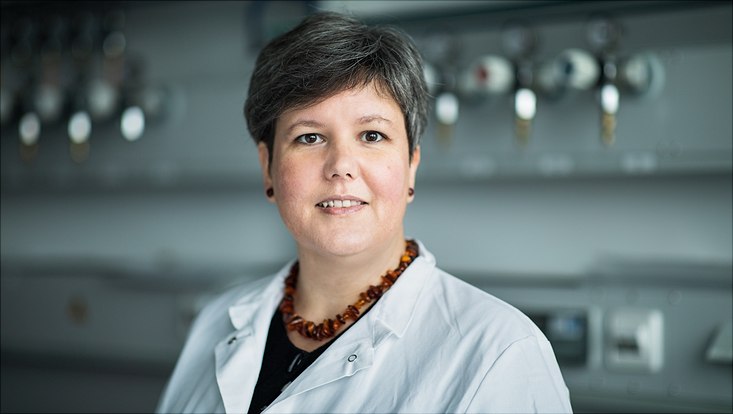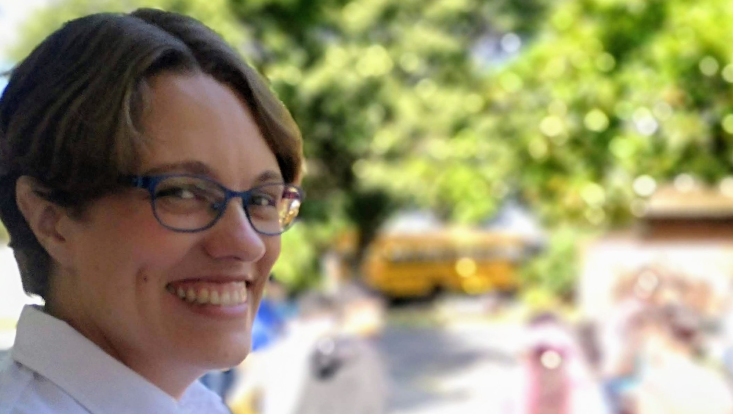“Welcome Aboard!”“I am interested in how microorganisms interact with food.”Prof. Dr. Agnes Weiß strengthens the Faculty of Mathematics, Informatics and Natural Sciences.
17 March 2022, by Weiß / newsroom

Photo: UHH/Esfandiari
Every year, Universität Hamburg welcomes numerous new researchers. This series introduces them and their areas of research. This time: Prof. Dr. Agnes Weiß.
Prof. Dr. Agnes Weiß, formerly of the University of Hohenheim, came to Hamburg and joined the Department of Chemistry in the Faculty of Mathematics, Informatics and Natural Sciences on 1 January with a professorship for foodstuffs microbiology.
My research area in 3 sentences:
Foodstuffs microbiology is concerned with all types of microorganisms found in food or that we humans add to create or enhance food. This includes, for example, sauerkraut, which results from fermentation, or various dairy products such as cheese. But it also focuses on microorganisms that spoil food—we are all familiar with moldy household products.
This is how I explain my research to my children, friends, and family:
People used to think that microorganisms used food only as a repository. We now know that microorganisms recognize animal and plant products as such and interact with them. I am especially interested in how they interact with foodstuffs and what these interactions do to the microorganisms themselves and how those influence their properties.
My research is important to society, or to help resolve the following issues:
Due to the growth of the world’s population and climate change, we will need other agricultural practices if we wish to feed everyone. It will be important to ensure food security and to do so, we need to know what influence microorganisms and pathogens have on foodstuffs, and vice-versa. Moreover, in the area of fermentation, I will look at how we can identify organisms that bring out special properties in foodstuffs. For example, by breaking down non-digestible bits or by allowing for the production of substances in foodstuffs that provide added value.
I will study the following foodstuffs:
Naturally, I will look at the classic German fermented foodstuff—sauerkraut. But I will also look at various fermented products from Asia. For plant-based foodstuffs, I will focus primarily on lettuce, because this is generally consumed raw.
I mainly use methods like:
Of course, you cannot just ask microorganisms how they’re doing. That means we have to look at gene regulation to see which metabolic pathways are active or under which conditions they can be curbed. Those are the molecular biology methods that we use. Additionally, we use microscopes to visualize, that is to see where exactly microorganisms inhabit plants.
These are my plans for teaching at Universität Hamburg:
I find it very important in teaching to include several practical components alongside theory so that students gain hands-on experience. I always have a lot of fun when students come to the lab for projects. And I would like to invite them to do so because I notice it does not benefit just the students but me, as well.
In Hamburg, the city and the University, I am looking forward to:
I worked in Hamburg during my studies and I already really liked the city then. The University environment is very exciting because extant professorships offer a lot of opportunity for cooperation. And Hamburg also provides a terrific research environment. When I first saw the ad for the professorship, I knew I wanted the job.


